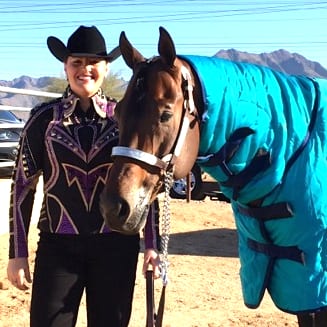Ready for a new horse? The giddy feeling associated with shopping for a new mount is like no other, as any horse crazy competitor can attest. But what if your next level of horse is out of your budget, or you simply need a new horse temporarily while yours is laid up? The answer for many has been found in the form of leasing. When AQHA, APHA and ApHC approved leases by youth, amateurs and non pros, a whole new world also opened up to those who perhaps had less options.
“I think it has helped everyone because it has brought more people into the industry, kept more people in the industry and created more numbers and points. That is a positive for everyone,” says AQHA Judge and trainer Christa Baldwin.
Since it’s quite a different agreement than a purchase, a lease must be planned carefully and thoughtfully with perhaps even more attention to detail. If you’re thinking of leasing a horse, or leasing yours out, here’s what our experts suggest.
1) Spell it out
While leases have to be filed with each association, the minute details in writing between two parties are most crucial to a successful lease.
Making no assumptions is the best practice, advises trainer Carolyn Rice.
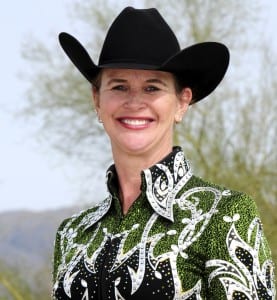 “I think the biggest hole in leasing can be non-clarity of the expectations of who cares for what, and who pays for everything, because usually unhappiness stems from a surprise expense,” Rice states. “You need to address areas of health care, supplements, the training situation, the hauling situation, and all aspects of costs and have them predefined.”
“I think the biggest hole in leasing can be non-clarity of the expectations of who cares for what, and who pays for everything, because usually unhappiness stems from a surprise expense,” Rice states. “You need to address areas of health care, supplements, the training situation, the hauling situation, and all aspects of costs and have them predefined.”
Rice adds, “You also need to think about what your expectations are and put those on paper so it’s as smooth as it can be. If you say something verbally it could be perceived differently by both parties, so it needs to be written down. All that sounds like a lot of work, but unless you do that work, you could potentially have a situation that might not end up on a positive note.”
Baldwin agrees with being as specific as you can.
“I highly suggest that the owner of the horse and the lessee sign a contract between the two parties spelling out the timeline (usually a year) and everything that is to be covered such as who pays for what, vet, routine care, board, training, hauling, entry fees (which under AQHA must be paid for by lessee), mortality insurance and/or colic/surgical insurance, showing expenses, etc.,” she adds. “It needs to be spelled out so there are no misunderstandings later.”
2) Involve the trainer
Utilizing the expertise of your trainer in the many facets of leasing is a smart move, since your trainer will likely be helping you with the leased horse.
“I’m a big proponent of leasing, but it’s not for everyone, so review the lease with your trainer to make sure all your expectations are the same. Make sure your trainer is on board and knowledgeable and part of that agreement,” advises Rice.
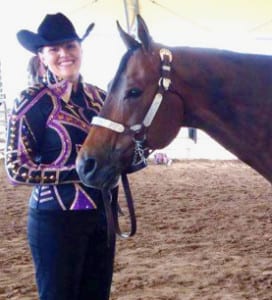 Amateur Kelly Haugen (pictured left), who is experiencing her first lease this year, explains her agreement succeeded because of her trainer’s assistance. “My trainer, Brett Clark, was instrumental in making this lease happen. Invite Meto Unzip, “Junior”, was already in Brett’s barn and his owner was looking to take a little time off. Brett facilitated the lease for us, which made everything a fairly smooth process.”
Amateur Kelly Haugen (pictured left), who is experiencing her first lease this year, explains her agreement succeeded because of her trainer’s assistance. “My trainer, Brett Clark, was instrumental in making this lease happen. Invite Meto Unzip, “Junior”, was already in Brett’s barn and his owner was looking to take a little time off. Brett facilitated the lease for us, which made everything a fairly smooth process.”
Trainer Missy Thyfault advises that the trainer setting up a lease can inform the lessee of possible pitfalls and situations that may occur, as well as determine if everything is a good fit.
“The agent/trainer who sets up the lease needs to fully inform the lessee that the horse should be taken care of in the fashion that it is accustomed to. The care of the horse and decisions made can affect the horse’s value immensely,” Thyfault states. “The combination of the horse and rider is important to maintain the show record on the horse so as not to lose value as well. So, in pairing up a lease situation, the trainer needs to do an evaluation on whether or not the lease would benefit both parties involved.”
3) Arrange a win-win for everyone
Thyfault explains that the ultimate goal is to make sense for lessor and lessee. “It works out best when it is a situation in which the owner and the lessee are both meeting a need.”
 For the rider, Haugen says leasing can be a huge benefit. “I believe leasing has provided a better opportunity for people new to the horse industry to try out our fantastic sport without a huge financial commitment. It has also helped individuals who have a horse with an injury continue to compete while their horse recovers.”
For the rider, Haugen says leasing can be a huge benefit. “I believe leasing has provided a better opportunity for people new to the horse industry to try out our fantastic sport without a huge financial commitment. It has also helped individuals who have a horse with an injury continue to compete while their horse recovers.”
Baldwin (pictured right) adds that leasing has to add up for the owner as well as the rider, since it can offer certain rewards. “It increases the value of their horse, keeps a horse in shape and most times in training. If they want to sell, it gets the horse out in front of a larger audience or may put more points on the horse, therefore increasing its value down the road.”
4) Pick your barn wisely
Different opportunities can arise for leasing, but all the experts agree the ideal conditions involve an in-barn lease.
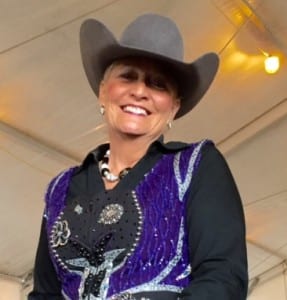 “I believe the most optimal situation is leasing a horse in your own trainer’s barn,” says Haugen. “That way there is no learning curve for the trainer and horse. It is simply (sort of!) the rider and horse getting together. It also gives the lessor the comfort of knowing their horse is still in their trainer’s care. If that is not an option, then make sure you find out as many details on the horse you plan to lease.”
“I believe the most optimal situation is leasing a horse in your own trainer’s barn,” says Haugen. “That way there is no learning curve for the trainer and horse. It is simply (sort of!) the rider and horse getting together. It also gives the lessor the comfort of knowing their horse is still in their trainer’s care. If that is not an option, then make sure you find out as many details on the horse you plan to lease.”
Baldwin concurs, “I would recommend from an owners stand point that the horse stay in a trainer’s barn. It would of course depend on the circumstances and the relationship the owner and lessee have. But for the most part, the horse should stay in training and have a third party involved and overseeing.”
5) Don’t forget to consider the horse
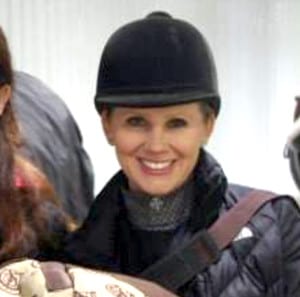 Thyfault mentions that part of the idea of keeping a horse in training is also to provide consistency in a qualified program out of fairness to the horse. “Too many changes for the horse will not be a good experience for the lessee,” she says.
Thyfault mentions that part of the idea of keeping a horse in training is also to provide consistency in a qualified program out of fairness to the horse. “Too many changes for the horse will not be a good experience for the lessee,” she says.
She additionally recommends an older horse for the best experience for all involved, including the horse. “I do not feel it works out very often to lease a younger horse unless the lessee understands that a horse is ready on their schedule, not necessarily on the lessee’s schedule,” Thyfault says. “A lease is by nature on a time frame and to fulfill a need so older, more predictable horses are more suited to lease programs. I have had leases in the past on younger horses and in the end it puts too much pressure on a young horse to be ready sooner and to show more often than they are ready for.”
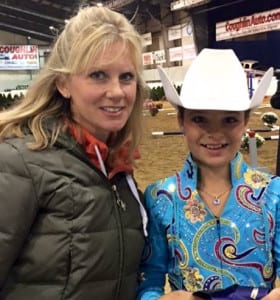 Thyfault adds, “In my experience, it is hard for someone to be patient when all they can think about is the lease year is ticking away. I feel it is always best to do what is right for the horse first, and then it ends up being right for everybody.”
Thyfault adds, “In my experience, it is hard for someone to be patient when all they can think about is the lease year is ticking away. I feel it is always best to do what is right for the horse first, and then it ends up being right for everybody.”
The parting advice to remember is above all, to document as much you can in the lease to provide the greatest experience possible. “The best case scenario the horse comes out the same as before the lease. If you have everything predefined, then both parties know what to expect when something is no longer golden,” Rice recommends.
Then, sit back and enjoy the ride. “One of the girls who leased through my program told me it was one of the best experiences of her life,” reveals Thyfault. “In my opinion, when done right, it is something valuable to our industry.”


